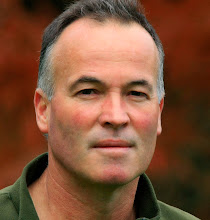The following segment is part of a story published in the UK newspaper, the Guardian on the 13th of April, 2010.
It refers to the recent legal case initiated by Richard Dawkins and Christopher Hitchens, against the Pope.
It also raises the possibility of holding to account the perpetrators of crimes committed at a greater level, by the likes of bureaucrats and politicians, who are presently deemed exempt.
The following segment of the story refers to Ecocide - as we are currently experiencing in New Zealand, many would argue....
....At last we are waking up to what international law means. For the first time in modern history the underlying assumption of political life – that those who exercise power over us will not be judged by the same legal and moral norms as common citizens – is beginning to crack.
International law is the belated reply to one of the oldest surviving aphorisms in the English language. There are half a dozen versions, but the best-known is this: “They hang the man and flog the woman / That steals the goose from off the common / But let the greater villain loose / That steals the common from the goose.” This is the way we thought it would remain. The powerful were licenced by our expectations to carry on committing great crimes, while their subjects were punished for lesser offences. No longer. Picture the Pope awaiting trial in a British prison, and you begin to grasp the implications of the radical idea which has never yet been applied: equality before the law.
At the same time as Dawkins and Hitchens laid out their case, the barrister Polly Higgins challenged our perceptions of what legal equality means. On Friday she launched a campaign to have a fifth crime against peace recognised by the International Criminal Court(8). The crime is ecocide: the destruction of the natural world.
The laws of most nations protect property fiercely, the individual capriciously and society scarcely at all. A single murder is prosecuted; mass murder is the legitimate business of states. Only when these acts are given names – genocide, crimes against humanity, war crimes, crimes of aggression - do we begin to understand their moral significance.
The same applies to nature. The Wildlife and Countryside Act 1981 criminalises anyone who “intentionally picks” a single flower from a protected plant(9). But you can grub up as many as you like as long as it’s “an incidental result of a lawful operation.” Pick a buttonhole and you could find yourself in the dock. Plough out the whole habitat and the law can’t touch you.
Higgins gives some examples of ecocide: the tar sands mining in Alberta, the Pacific garbage patch, the pollution of the Niger Delta by oil companies(10). She points out that ecocide is rarely a crime of intent, but in most cases an incidental consequence of other policies. Company directors or politicians could be prosecuted individually(11), but instead of being fined they would be charged for the restoration of the natural systems they’ve damaged. The purpose of criminalising ecocide is to raise the costs of trashing the planet to the point at which it ceases to be worthwhile. This is the obvious outcome of a wider understanding of legal equality: why should private property be protected while the common wealth of humanity is not?
International law as currently applied is often described as victors’ justice: the only people who get prosecuted are those who lose the wars they fight with powerful states. It’s not even that. Last week we learnt that some 50 suspected war criminals or human rights abusers are living in Britain(12). Among them are alleged torturers who worked for Saddam Hussein’s government, one of Robert Mugabe’s henchman, a member of Sudan’s janjaweed militia and a gruesome collection of Afghan warlords. But the police have been given no budget to investigate them and the Crown Prosecution Service has no resources with which to pursue them. So, while shoplifters are sent down, alleged mass murderers walk freely among us.
To view the full story - Click here
Subscribe to:
Post Comments (Atom)







No comments:
Post a Comment